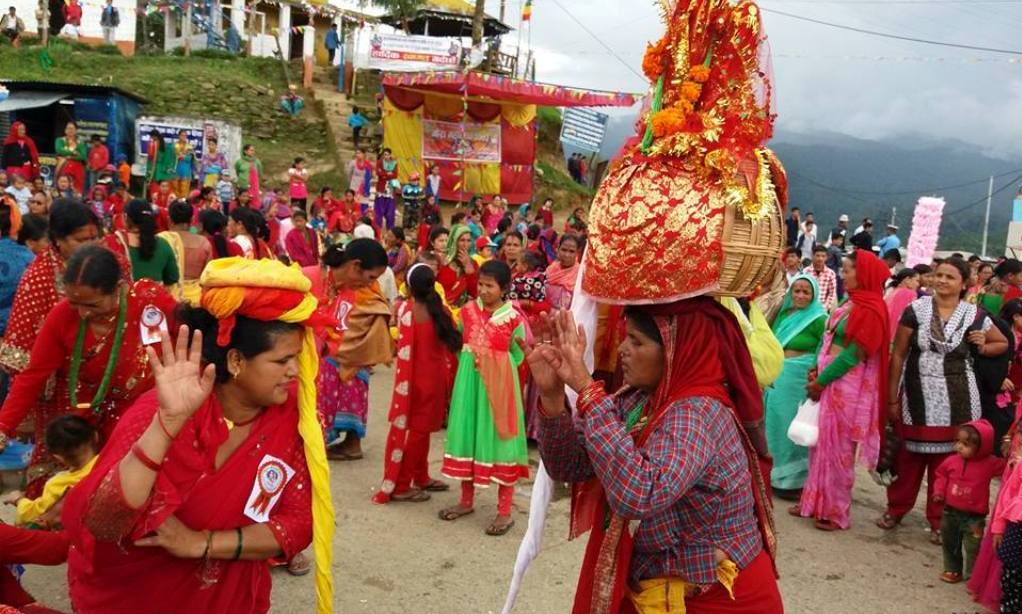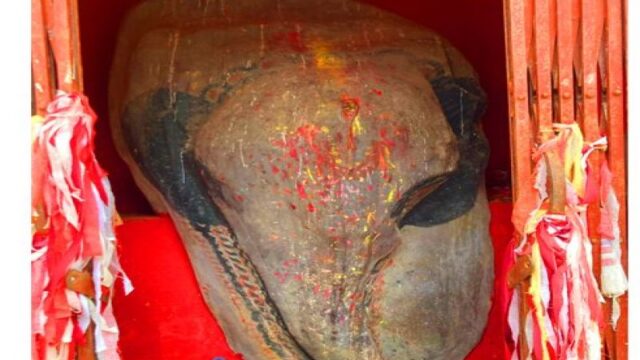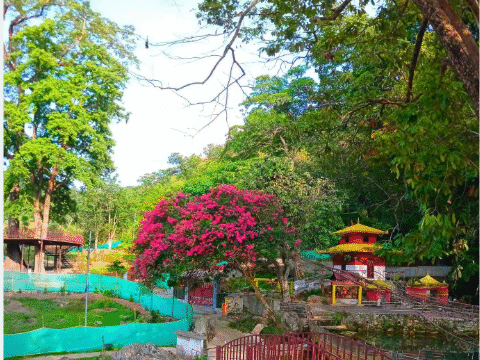The important festival of Durvashtami, also known as Athewali, is being celebrated with great fervor today across the Sudurpashchim region, including Kanchanpur. This day holds significant value for women, who consider it crucial for Gaura worship. The term “Durvashtami” originates from the practice of performing Gaura puja with grass.
On this day, women wear the sacred ‘Duvadhago,’ a sacred thread made from holy fabric, which they don after it has been ceremonially blessed. Women who wear the Duvadhago are regarded as pure and are granted the first right to prepare meals. This tradition has been a part of the region’s culture for generations, with women who wear the Duvadhago having full rights to perform the Gaura puja.
Early in the morning, women bathe in rivers and ponds and bring the Gaura Devi’s idol, made from grass, and the Maheshwar idol, made from wood to the courtyard. They adorn these idols and dance with them on their heads while singing traditional songs. This practice is part of the Athewali ritual, which involves singing Maheshwar and Gaura songs in eight chapters, according to cultural expert Dharmannad Joshi.
During Athewali, women form circles, clasping each other’s pinky fingers, and perform traditional dances and songs. A special dish, Biruda, made from soaking five types of grains, is used in Gaura puja. Traditionally, Biruda was soaked in the homes of esteemed villagers, but now it is often prepared in Gaura temples, Sagol, and households for convenience.
The festival is rooted in the legend that Parbati, the daughter of the Himalayas, observed a fast to win Lord Shiva as her husband. Similarly, unmarried girls perform rituals to wish for a husband like Shiva. During Athewali, women place the Gaura Devi’s idol on their heads and dance, while men engage in traditional games such as Dhumari, Dhusko, Thado, and Deuda, which are based on epics like the Mahabharata and Ramayana.
As part of the celebration, after the Gaura dance, fruits and Biruda are thrown into the sky by two men dressed in clean clothes, a practice believed to fulfill wishes if the fruit lands in the sky. Additionally, men traditionally change their sacred threads on Athewali. Women wear new Duvadhago and perform puja with Biruda at home, and men participate in Thado games in the evening.
The festival concludes with the immersion of the Gaura idol in the river, accompanied by music and celebrations. The tradition of celebrating Gaura extends to family members returning from abroad, with the festival marked by new clothes and festive meals. It is a time when everyone, regardless of social status, rejoices together in the festive spirit.






